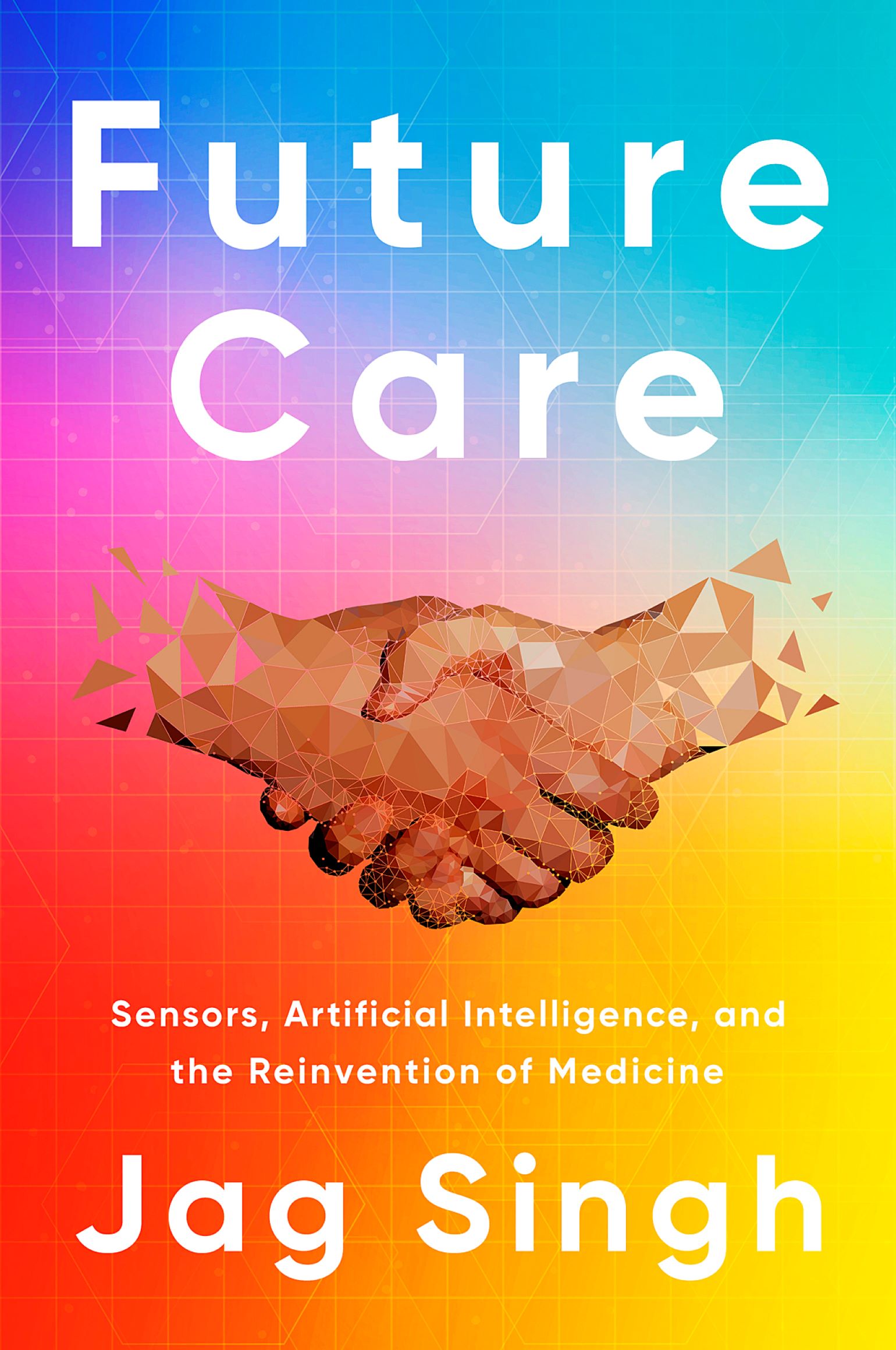New Book Envisions the Future of Digital Health
In This Article
- The current U.S. healthcare model is reactive, focuses heavily on chronic illness, and is financially unsustainable
- Existing digital health technologies such as sensors and artificial intelligence have the potential to reinvent medicine
- New book describes a digital approach to preventive medicine that can help prevent chronic disease and control soaring costs
An alumnus of the Massachusetts General Hospital Heart Center has published a new book that discusses the essential role that sensors, predictive analytics, and artificial intelligence (AI) will play in the evolution of healthcare in the next 10 years. The book, Future Care: Sensors, Artificial Intelligence, and the Reinvention of Medicine (Mayo Clinic Press, 2023), describes a future where the healthcare system empowers patients and providers to be more proactive about health to combat chronic disease and control soaring costs.
Subscribe to the latest updates from Cardiovascular Advances in Motion
"The United States spends about 18% of its gross domestic product on healthcare. Despite that, our quality metrics are nowhere in comparison to other nations. Part of that is because there are still millions of uninsured individuals, inexplicable costs, and inequitable access to care. We talk about cost-cutting and cost-saving strategies, but we continue to practice in a system that is so hinged on volume, hinged on the sickness of our patients," says author Jag Singh, MD, PhD, former clinical director of the Cardiology Division at the Mass General Heart Center. "We need to flip that argument, shifting strategies toward wellness and preventative medicine, to make our healthcare system sustainable."
Throughout the book, Dr. Singh uses a narrative style and patient stories to put forth an equation for the future of healthcare: sensors plus predictive analytics plus virtual care to equal better clinical outcomes.
The Need to Integrate Data, Sensors, and AI in Healthcare
Dr. Singh has spent much of his career studying sensors, AI, and virtual care in cardiology and cardiac electrophysiology. His research and clinical experience motivated him to think about the potential of digital healthcare on a much larger scale. Then the COVID-19 pandemic, coupled with his own experience as a COVID-19 patient, accelerated the concept and the writing project.
"The concept for this book had been bubbling in me for more than eight years, and I started writing it a year before the COVID-19 pandemic. That was a watershed moment for people's willingness to embrace technology across the world. The pandemic opened everyone's eyes and allowed us to understand that we can adapt quickly when needed," Dr. Singh says.
And we desperately need to adapt quickly, he argues, to make healthcare sensible, affordable, and practical. Dr. Singh's premise is that the current model—a reactive one that uses intermittent data and focuses on sickness after it occurs—is not sustainable.
"Three of every four dollars spent on healthcare is on chronic diseases. The current system largely relies on providers seeing patients every few months or every year, but people don't predictably fall in during those intervals," he says.
In contrast, Future Care describes a proactive model powered by rich, continuous data that can make medicine more personalized and preventative. Sensors and wearable technology, Dr. Singh argues, can power this transition with continuous surveillance. He envisions a system that uses these sophisticated digital strategies to move the current system to "exception-based care," when providers see patients only when they need to be seen. In addition, virtual technologies will allow patients to receive care wherever they are and whenever they desire.
Tools for Digital Health Are Already Reality
Future Care predicts that this system will be a reality within about 10 years.
"I know it may seem a little bit pie in the sky," says Dr. Singh. "But these technologies exist. We already have wearable and implantable sensor technology that can monitor many key health indicators, including blood glucose, blood pressure, heart rate, respiratory rate, body temperature, oxygen saturation, cardiac output, and stroke volume." Other examples include sensors that can identify key changes in people with Parkinson's disease, or engage with smartphone usage data to predict issues with mental health.
"The technology is just not evenly distributed or widely used, and it needs to be better integrated into the workings of a hospital system," he explains. The book discusses some of those logistical hurdles, including getting buy-in, incorporating new technology into workflows, integrating large amounts of data into the electronic medical record, and ensuring privacy.
Getting to that point will be challenging. "But with some visionary leadership and if we generate enthusiasm, we can certainly make this change," Dr. Singh says. "I'm hoping that this book will open a wider public discourse and bring change, not just from the inside out from clinicians making changes, but from the outside in based on expectations from patients and how they would like to be looked after."
Partnership to Maximize Preventive Medicine

Figure 1
The cover image of Future Care: Sensors, Artificial Intelligence, and the Reinvention of Medicine (Mayo Clinic Press, 2023) by Jag Singh, MD, PhD.
The cover of the book features a digital rendering of two hands clasping each other, as if in a handshake. The image illustrates two key concepts of the book. First, everyone needs to be a part of the solution, Dr. Singh says, so providers and patients must work together.
"The Future Care system is not sustainable without proactive patient involvement. Patients have to have skin in the game and use self-management strategies. Otherwise, it is impossible to manage disease across every human being in the world."
The image also evokes the concept that digital technology can make care more personalized—not less.
"Digital health technology won't replace the importance of the human element of touch, empathy, and compassion," Dr. Singh says. "Technology can actually free up time so you can look at your patients in their eyes and talk to them."
Learn about the Corrigan Minehan Heart Center
Refer a patient to the Corrigan Minehan Heart Center